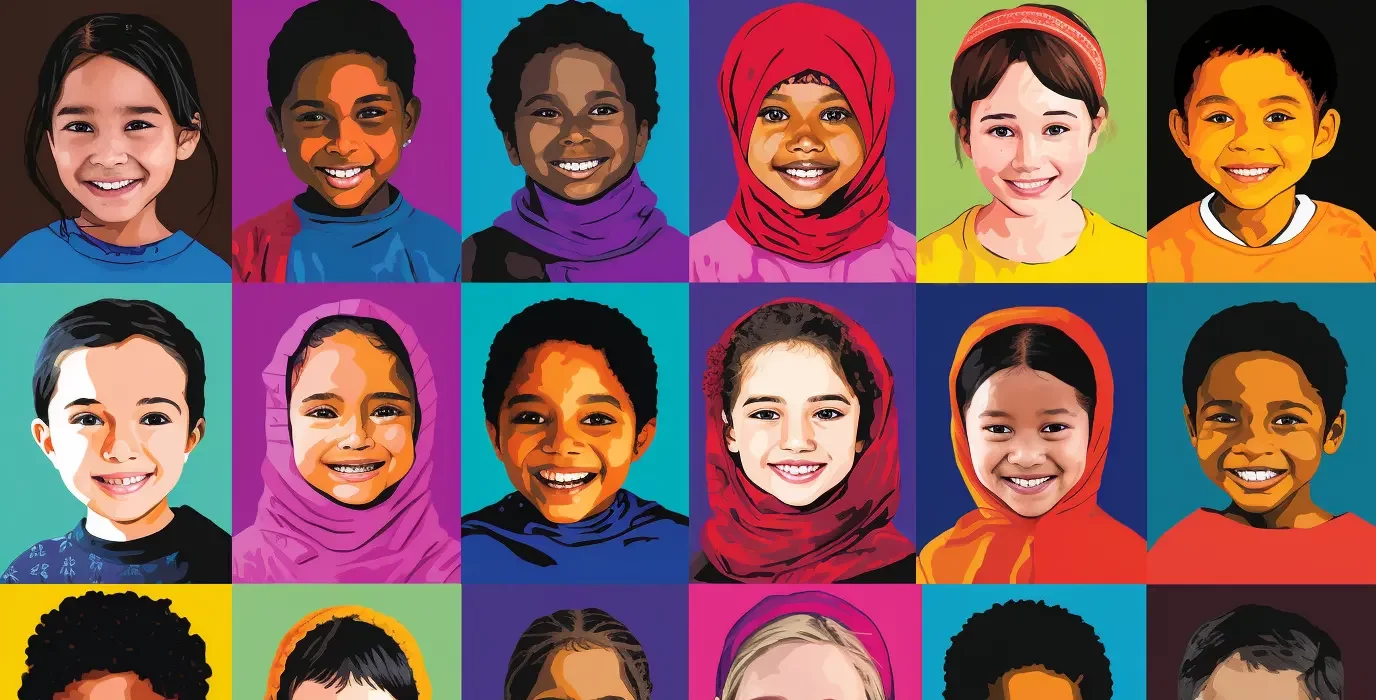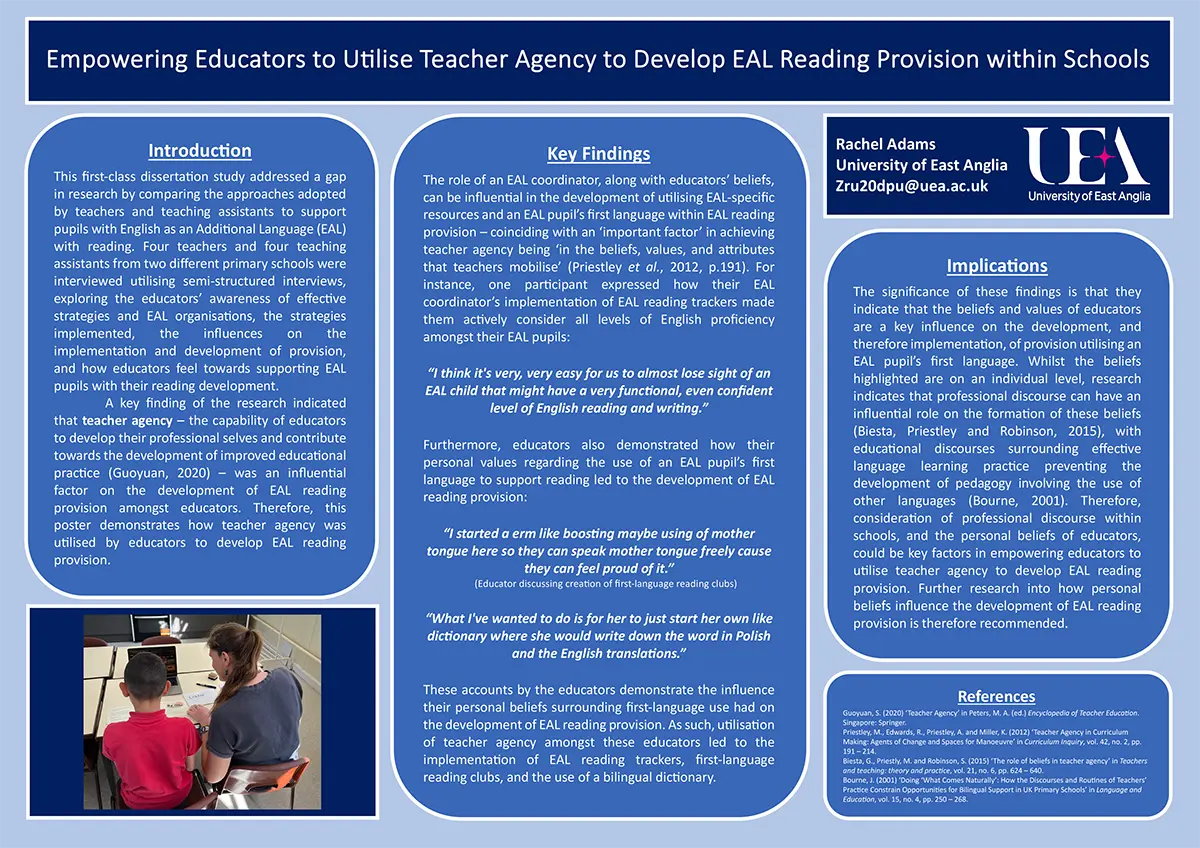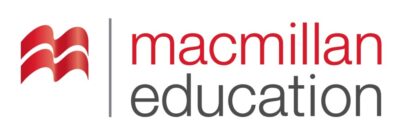Voices of resilience and action: exploring multilingualism and education for refugee learners
Our 31st Annual EAL Conference
Saturday November 11th 2023, 9am-5pm
University of Gloucestershire in Cheltenham & Online (via Zoom)
EAL Conference 2023 | #naldic31
This year over 91,000 people have applied for asylum in the UK, meaning that the numbers of refugee children entitled to full time education in the UK is increasing. Refugee learners are a diverse group, with some children arriving with family or friends, but increasing numbers arriving unaccompanied. Many have undertaken harrowing journeys to reach the UK, and face uncertain futures.
Within this context, the NALDIC31 EAL Conference provided a space for sharing the experience of researchers, teachers and early years practitioners in working with refugee children and their families. The conference illuminated the crucial role of cooperation between schools and service providers, and the importance of comprehensive support structures for refugee children.
The NALDIC31 EAL Conference fostered engaging discussions among all stakeholders in the education of refugee children, with the objective of inspiring attendees and equipping them to support the multilingualism and education of all learners.
Concluding our 30th-anniversary celebrations and our first in-person conference since 2019, the NALDIC31 EAL Conference was held at the University of Gloucestershire, Park Campus in Cheltenham. Drawing on our recent online conference successes, we were delighted to offer a hybrid format to make the NALDIC31 EAL Conference widely accessible.
We extend our heartfelt thanks to all attendees, both in person and online, for contributing to the success of our recent conference. It was a truly enriching day of learning and collaboration, and we appreciate your valuable participation.
Conference format
What were the formats for our first hybrid conference?
We extend our sincere thanks to everyone who participated in our inaugural hybrid NALDIC conference. In this innovative format, presentations in the main lecture theatre were live-streamed for our online audience, providing a dynamic virtual experience. Paper presentations conducted in other rooms were recorded and will be uploaded to the NALDIC website for future access once edited (attendees and members will be notified). Your active engagement contributed to the success of this event, and we appreciate your valuable participation.
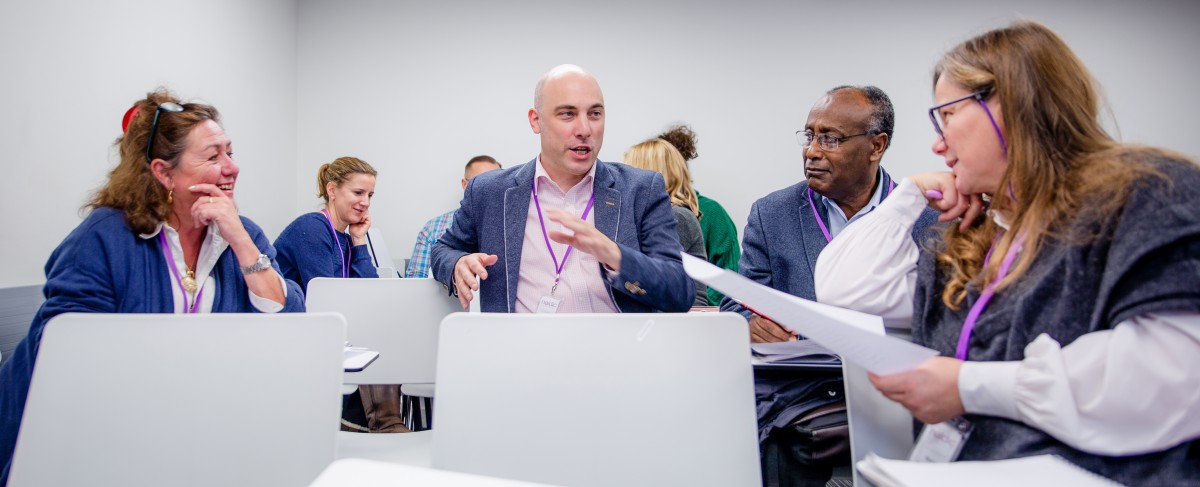
Paper Presentations
Having delved into the conference theme, these live presentations spotlighted classroom practices or research findings. Each session contained two papers, with each paper running for 20 minutes, plus a 10-minute Q&A segment.
Interactive Workshops
Workshops were geared towards enabling engagement and exploration of classroom practices or research. Small group discussions, tasks, and activities took centre stage during these 55-minute sessions.
Poster Presentations
Embracing both traditional and innovative methods for our poster presentations, in-person attendees used breaks between sessions to meet poster presenters and hear about the latest classroom practices or research at our physical venue, the University of Gloucestershire’s Park Campus. For our virtual participants, posters remain accessible for viewing online.
Table Discussions
To make the most of our first in-person conference since the pandemic, we engaged in roundtable discussions to dive into the issues facing attendees. Each table of 10 was guided through a series of questions by their NALDIC discussant. Virtual breakout rooms were made available for online participants to participate in these lively discussions.
Whether you joined us in person in Cheltenham or tuned in from a remote location, we appreciate the exchange of ideas, interaction, and shared learning experiences that the first-ever hybrid NALDIC conference offered.
Keynote Speaker: Tony Capstick
University of Reading
 Tony Capstick is Associate Professor of Language and Migration at the University of Reading, UK. He carries out research on language use and language education in resource-low environments and his main focus is multilingualism and migration, particularly in refugee settings. As a teacher of English he worked for four years in Europe followed by ten years in Asia. He has worked on language policy with UNHCR, the Department for Communities (UK) and the British Council where he is a member of the English Language Advisory Group. He was Lead Educator of the Futurelearn MOOC Migrants and Refugees in Education: A toolkit for teachers having previously co-authored the report ‘Language for Resilience’ for the British Council. His textbook for Routledge Language and Migration was published in 2020.
Tony Capstick is Associate Professor of Language and Migration at the University of Reading, UK. He carries out research on language use and language education in resource-low environments and his main focus is multilingualism and migration, particularly in refugee settings. As a teacher of English he worked for four years in Europe followed by ten years in Asia. He has worked on language policy with UNHCR, the Department for Communities (UK) and the British Council where he is a member of the English Language Advisory Group. He was Lead Educator of the Futurelearn MOOC Migrants and Refugees in Education: A toolkit for teachers having previously co-authored the report ‘Language for Resilience’ for the British Council. His textbook for Routledge Language and Migration was published in 2020.
Keynote Title: Researching resilience and multilingualism: a global view on education for refugee learners
In this talk I explore the interface between language, displacement and resilience for refugee learners. While language as a communicative resource is becoming even more important in mediating, regulating and shaping migrant processes, increasing migration and displacement have had significant repercussions on our understandings of language learning is all its forms. I draw on case studies from across Europe, the Middle East and Sub-Saharan Africa to trace specific aspects of migration and explore key terms relating to multilingualism and migration to demonstrate how human movement has always been an important feature of social life and how, when people move, they take their languages with them.
I begin with a discussion of working in conflict and post-conflict settings given that the majority of the world’s displaced people seek refuge elsewhere in their home country (that is, they are internally displaced) or a neighbouring country which will at the very least be in low-resource settings and may also be experiencing precarity or conflict. The paper then moves to migration trajectories across Europe and a discussion of the disciplinary boundaries which intersect in education research in these settings .
I end with a discussion of the role of refugees as co-researchers and/or ‘beneficiaries’ is then developed in the light of research which seeks to establish what it means to work multilingually with refugees and migrants. I identify how teachers in these settings respond to increasingly diverse classrooms and research tools which are taken up if refugee settings are linguistically remote from the skills of the researchers when displaced people may have travelled significant distances to their current homes (Capstick and Ateek 2021). I consider throughout how we remain sensitive to the potential for vulnerability or trauma in refugees’ lives, whether the research is online, in classrooms or at the policy level.
Capstick, T., & Ateek, M. (2021). Translanguaging spaces as safe space for psycho-social support in refugee settings in the Kurdistan region of Iraq. Journal of Multilingual and Multicultural Development, 1-16.
Keynote Speaker: Clare Harker
St Albert’s Primary School
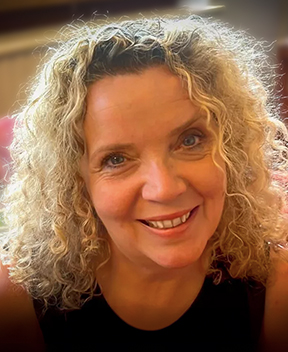 Clare Harker is Headteacher at St Albert’s Primary School, Glasgow.
Clare Harker is Headteacher at St Albert’s Primary School, Glasgow.
Keynote Title: A headteacher’s reflection on school as a place of refuge
More details coming soon!
Presentations – Papers 1-3
Paper 1
Aisha and Veena Meetoo, UCL
Institute of Education, University College London
veena.meetoo@ucl.ac.uk
Waithood, time control, and ‘slow violence’ in education for unaccompanied young people
Unaccompanied young people have been found to highly value education for their future aspirations, to build a better life and to overcome loneliness and form social connections (Browlees and Finch 2010). However, unaccompanied young people face barriers to education including waiting months for school and college placements, disruption associated with waiting for asylum decisions, uncertainty with status and housing, and transition periods in care (Fuller and Hayes 2019). In this talk, we discuss findings from ‘Children Caring on the Move’ (CCoM), a 39-month ESRC funded project conducted with young migrant co-researchers and university researchers on ‘care’ in the asylum-welfare nexus, to highlight unaccompanied young people’s experiences in education in the context of the ‘hostile environment’ and associated ‘time control’ (Rosen 2021). CCoM is motivated by a participatory ethic and centres unaccompanied young people’s involvement as co-researchers, positioning them as beings and experts in their own lives (Holloway and Valentine 2000). Drawing on data from peer led interviews and co-researchers’ reflections, we highlight how their educational experiences in interaction with immigration and welfare system constitutes a form of ‘slow violence’ (Darling 2022). In light of unaccompanied young people’s views on education as important for their wellbeing during periods of waithood, and as a means to reclaim a sense of agency over their futures to realise their aspirations, we highlight how ‘slow violence’ is experienced through the erosion of education related hopes, motivations, goals and opportunities, and their mental wellbeing. Prolonged periods of waithood for decisions on asylum applications and a culture of disbelief render unaccompanied young people as ‘undeserving’ of quality education and the opportunities all young people should be afforded. We also highlight the strategies unaccompanied young people adopt in education to reclaim some control of time in waithood, alongside the importance of support from adult professionals including teachers.
Paper 2
Inna Hryhorovych and Kathryn Kashyap
St Mary’s Ukrainian School and Achieving for Children
inna.hryhorovych@stmarysukrschool.co.uk | kathryn.kashyap@achievingforchildren.org.uk
Refugee displacement and teaching careers: modelling resilience in the face of war
Displacement, for any individual, can be a daunting experience. For a teacher, the process of having to adapt to an entirely new educational system, in addition to navigating the personal upheavals of displacement, is not a simple one. Research over the past two decades demonstrates the significant barriers that displaced teachers face when attempting to gain employment in a host country. With career paths and vocations disrupted by war, the structural barriers faced by displaced teachers such as recognition of past qualifications are compounded by personal factors such as age, parenthood, gender and the time of arrival (Smyth & Kum 2010; Ratkovic and Peitka-Nykaza 2015). Despite the fact that the profession often calls for diversity in teaching as a valuable asset, including drawing on lived experiences of displacement (Kum, Menter and Smyth 2010; Nabhani & Bahous 2020), biases and assumptions around notions of teachers’ “standard” English (Cushing 2023), dismissal of past experiences and expertise as valid, and a lack of dedicated career support from local authorities (Mozetic 2020) can prevent displaced teachers from taking up their career in their host country. This paper explores how a group of Ukrainian female teachers negotiate the intersection of gender, refugee status and profession (Ratkovic and Peitka-Nykaza 2016) to not only prove their own resilience in the face of war, but support children, young people and families to settle in to a new education system as well as leading education in the home language in a supplementary school. Furthermore we explore how these women demonstrate their agency through forging ways to train host schools in how best to welcome and foster new arrivals, thus proving, as Dryden-Peter (2020) argues, that refugee teachers have much to teach the world.
Paper 3
Jo Carrington
University of Bristol and Clevedon School
jc15623@bristol.ac.uk
Embracing capabilities: one secondary school’s journey
Mason and Dale state we live in “a world that is considered to be multiple, in flux and not cohering in a way that permits conclusive measurement” (Mason & Dale, 2011). Even though this is applied to research, the same could be said of school education. Can we measure the capability of one student through a uniform examination system? Moreover, language cannot be “achieved by osmosis through exposure of use for the vast majority of learners” (NALDIC 2021). With the steady increase of refugee and asylum seekers into North Somerset, whose demographic from the last census was 90.4% white British (Government UK, 2022), this is the story of how one secondary school is adapting its academic and pastoral care, so all students can achieve and celebrate their own identity.
Using the philosophy of Nussbaum and her capability framework (Walker, 2008), the focus has been to celebrate EAL achievements as a visible part of school culture. Students have been encouraged to use their voice in different ways, and not see language as a barrier to creativity and learning. Among other initiatives, the school has reworked the tutoring system; linked with community groups specialising in film, the spoken word and performance poetry; embraced a parallel examination system (Graded Examination Certificate in English) based on voice, and created an annual Celebration of Voice, where EAL students perform in English and their first language to parents and local community.
During the presentation, I will share experiences captured in photographs taken by a Ukrainian student who joined the school one year ago, and also speak of how these students are helping to shape their own future and enrich the learning of others within the school.
References:
Government UK (Published 22 December 2022). (Regional ethnic diversity – GOV.UK Ethnicity facts and figures (ethnicity-facts-figures.service.gov.uk) Downloaded 31/07/2023
Mason, J., & Dale, A. (Eds.) (2011). Creative tensions in social research: Questions of method. SAGE Publications Ltd, https://doi.org/10.4135/9781446287972
NALDIC (2021). Letter to Gavin Williamson concerning the abolishment of the National Lead for EAL, ESOL, Gypsy, Roma, Travellers. NALDIC Letter to Gavin Williamson 2021-04-12.pdf – Google Drive (Accessed 3/08/2023)
Walker, M. (2008). A human capabilities framework for evaluating student learning, Teaching in Higher Education, 13:4, 477-487, DOI: 10.1080/13562510802169764
Presentations – Papers 4-6
Paper 4
Annemarie Procter
The City of Edinburgh Council
annemarie.procter@ea.edin.sch.uk
An immediate response to unprecedented situations: a coordinated approach to supporting groups of Afghan and Ukrainian refugees, and lessons learned
This presentation describes one local authority’s experience of responding first to large groups of Afghan arrivals through ARAP (Afghan Relocations and Assistance Policy), and then to larger groups of Ukrainian arrivals mainly under Scotland’s Super Sponsor Scheme.
In both situations, groups of families arrived at the same time in larger numbers than we had seen before and were housed together in temporary accommodation.
The presentation details a collaboration between EAL specialists, partner agencies and schools and will discuss:
- ways of working with limited access to L1 speaking staff (in the case of languages spoken by Afghan families);
- working with people – not numbers; unpicking data and relating it to individuals;
- creating on-site classrooms in hotels to prepare children and young people with trauma and limited or very different experiences of education for joining school (Afghan children);
- supporting schools to welcome large groups of refugee learners;
working with unprecedented numbers of refugee families accommodated on a docked ship and in hotels, to enrol their children in schools and navigate a new education system; - using an inclusive approach to supporting children with Additional Support Needs and their families to overcome cross-cultural misconceptions and develop a shared understanding of the Scottish education system;
- the importance of collegiate support for staff teams working in unfamiliar environments and responding to challenging situations.
Paper 5
Elizabeth Campbell
NSW Department of Education
elizabeth.m.campbell@det.nsw.edu.au
EAL/D Education in Australia: An overview of EAL/D support in NSW government schools
In NSW government schools in Australia more than 25% of students are learning English as an additional language or dialect, including approximately 11,000 students from refugee backgrounds. Since 2015, the NSW Department of Education has collected data annually about students’ English language proficiency and visa status to deliver needs-based resources to schools across the state.
The Australian Curriculum, Assessment and Reporting Authority (ACARA) EAL/D Learning Progression is used in NSW and has supported the development of a consistent definition of EAL/D learners. Information gathered through this tool is used to identify EAL/D learners, to target language scaffolding, to provide resource allocation and to report progress in English language learning to parents.
The consistent definition of EAL/D learner has enabled the analysis of system-wide student achievement data through an English language proficiency lens. This has supported school leaders to include EAL/D student targets in school strategic planning and reporting. The clear identification of EAL/D learners has enabled research to identify effective practices in schools that value-add for EAL/D learners.
This presentation will provide an overview of EAL/D education in NSW government schools including how:
- EAL/D learners, including those from refugee backgrounds, are identified and supported using the ACARA EAL/D Learning Progression.
- EAL/D needs-based funding, and targeted funding for refugee students, is distributed and supports school strategic planning and accountability.
- English language proficiency is reported to parents.
- system-wide student achievement data is analysed using English language proficiency information and refugee status.
- research in Effective EAL/D practices has been undertaken and supports schools to improve teaching and learning including English as an additional language or dialect (EAL/D) Effective School Practices, and Classrooms of Possibility: working with students from refugee backgrounds in mainstream classes.
Elizabeth Campbell is the EAL/D Education Coordinator for the NSW Department of Education in Australia.
Paper 6
Sally Roberts
EAL Specialist and EAL author for CGP Publishers
Roberts1234@btinternet.com
Achieving National Curriculum expectations in a multilingual setting with illustrated sentence templates
Many teachers look at the needs of their emerging multilinguals and worry about how they can address their misconceptions and lack of access to the mainstream curriculum.
They might not be sure of the grammar rules that would help their pupils avoid making repeated errors of a similar nature.
They don’t have the intervention capacity to teach those rules.
They prefer not to remove the children from class for intervention because they miss out on the mainstream curriculum.
They don’t want to spend hours differentiating mainstream lessons.
I’ve been working with schools in Derby, using multilingual sentence-scaffolding techniques with the whole class, to teach mainstream curriculum content. It continues to challenge the children working at greater depth, but also addresses directly all of the issues above.
In this paper, I will first, demonstrate the use of a Year 2 speaking and writing frame prepared for teaching the National Curriculum age-related writing target for comparative adjectives. I’ll apply this to the curriculum context of growing beans. Initially, we’ll go through the teaching notes, commenting on the relevant grammar rules to be taught, common EAL errors and related teaching tips. Then, I’ll work through the lesson as it might work with a Year 2 class.
Next, I’d like teachers to discuss the applications they foresee, the variety of lesson delivery they imagine, the difficulties they might have, and the advantages it might bring.
For the main part of the session, teachers will be invited to work with others to input their own curriculum content to a set of 8-10 templates designed for their own year group; from prepositions to adverbials and coordinating conjunctions to subordinate clauses.
We’ll talk about the EAL-informed grammar notes, the importance of oracy, the value of repetition and the degrees of differentiation afforded within this format.
I hope to show that visually supported sentence-level scaffolding makes it easy to break down learning, making it more accessible, but also to build up learning, to make it more challenging.
Presentations – Papers 7-9
Paper 7
Maria Bîrlea and Izaskun Elorza
Birmingham City University / University of Glasgow / University of Salamanca
Maria.Birlea@mail.bcu.ac.uk
‘Looking slowly’ into migration-themed picture books
The social attention that migration has received in the last decades is being mirrored in children’s literature, with forced migration narratives recognised as an emergent genre (Hope, 2008). In migration-themed picturebooks migrants are given a voice that can potentially mirror refugee learners’ experiences, as well as foster non-migrant learners’ engagement with their fellow classmates (Hope, 2008). Picturebooks have also proved to be beneficial for fostering in children a positive attitude towards diversity (Mourão, 2022). But the beneficial aspects of picturebooks require to develop skills for interpreting multimodal (visual and verbal) information; hence, as Pantaleo (2020) suggests, not just an emphasis on the verbal, but a slow look on the visual and their combination.
The MIAMUL project (Children’s picture books about migration: Multimodal analysis and applicability to multicultural and multilingual environments) is exploring a set of 60 picturebooks on migration to gain a deeper insight into how visual and verbal language is used in them to represent migration and migrants, as well as on finding out what teachers, mediators and other stakeholders see when they read them or consider their affordances as reading material for refugee learners or multicultural and multilingual classrooms. Our ultimate goal is to identify the connections between the visual and verbal resources present in the picturebooks and the perceptions of the adults reading and thinking about them, in order to produce tools that can help teachers and stakeholders identify crucial features in them that they can use for understanding and fostering engagement more deeply.
References
Hope, J. (2008). “One day we had to run”: the development of the refugee identity in children’s literature and its function in education. Children’s Literature in Education, 39, 295-304. doi: 10.1007/s10583-008-9072-x.
Mourão, S. (2022). Interpreting and mediating a wordless picturebook in pre-primary early English language learning. In Å. Ommundsen, G. Haaland, & B. Kümmerling-Meibauer (Eds.), Exploring Challenging Picturebooks in Education, 59–78. Routledge. https://doi.org/10.4324/9781003013952-6.
Pantaleo, S. (2020). Slow looking: “reading picturebooks takes time”. Literacy 54 (1): 40-48.
Paper 8
Soofia Amin
Kensington Primary
soofia.amin@kensington.ttlt.academy
Partnering for success with multilingual families
Multilingual families are essential partners when it comes to supporting the language development of children. However, the challenges faced by families arriving in the UK can often present challenges and obstacles that schools are often not equipped or prepared for.
As an educational institution, we will be the first point of contact for many migrants and we underestimate how crucial this initial meeting will be for the family. I would like to share what I believe have been the successes in having a Multilingual approach in all aspects of school life. Ensuring that all levels of staff understand an asset based approach to languages and creating an environment that fosters the multilingual identity. Creating systems that foster positive relationships with families and a school culture that allows families to thrive in your setting.
Paper 9
Eva Gondorova
Baytree Centre (charity organisation)
eva@baytreecentre.org.uk
Into School and EAL programmes at Baytree Centre
I would like to give a short presentation about our Into School programme designed for migrant and forced migrant young girls, new arrivals to the UK, who are waiting for school and college places. The aim of the programme is to develop the participants’ English language and academic skills in addition to create opportunities for them to interact with their community and participate in offsite activities that boost their creativity and confidence. Another aim of the programme is to support the participants’ families with completing school/college application forms and help them understand the education system of the UK. When the participants of the programme start in secondary schools and colleges, our EAL programme is offered to them to aid the development of language skills required to access mainstream subjects. Our EAL Conversation Club on Mondays focuses on developing EAL A/B students’ basic interpersonal communication skills while our academic writing club on Thursday is designed to meet the needs of EAL C/D students.
My intention is to show some success stories of girls with asylum-seeking and refugee status who have progressed from arriving with limited language and literacy skills, despondent and with low confidence to expressing confidently their opinion and wishes and taking part in various community engagement projects. I would like to talk about some of the challenges that we have faced when working with a culturally diverse group of young girls with various levels of English language proficiency and previous formal education and the strategies we have used to ensure that everyone’s learning and social needs are met.
Presentations – Papers 10-12
Paper 10
Reka Jablonkai and Gail Forey
University of Bath
rirj20@bath.ac.uk
Supporting EAL learners to access to powerful discourses: British Academic Written English Secondary School Corpus (BAWESS Corpus)
The writing demands of high-stake standardised secondary school exams such as GCSE and A Levels are extremely challenging for many students and in particular new arrivals and EAL learners. “Young people who leave school without good literacy skills are held back at every stage of life” (Education Endowment Foundation, 2019:2). Building on work in language education, the teaching and learning cycle, disciplinary literacy and corpus linguistics, this paper introduces initial research from the BAWESS Corpus. The BAWESS Corpus is a discipline specific corpus of authentic student exam-practice written texts collected from secondary schools in the UK, and some international schools. The BAWESS pilot Corpus focuses on three disciplines – History, Geography and Biology.
The questions the study aims to answer are:
- What can a corpus of exam practice texts tell us about the genre, lexicogrammatical choices and disciplinary literacy requirements of History, Biology and Geography?
- What are the effective language features found in the long-answers in GCSE and A-level texts?
Adopting an SFL framework, a sample of texts have been initially analysed to identify patterns in the genre, generic stages and lexicogrammar, with the aim to identify ‘power words, power grammar and power composition’ (Martin 2013) in the three disciplines. We demonstrate how the findings from the BAWESS corpus could empower and provide greater access to teachers, EAL learners and researchers in relation to the disciplinary literacy practices of powerful language in school exams.
Paper 11
Gail Forey, Ben van Praag and Joy Cranham
University of Bath
g.forey@bath.ac.uk
Celebrating multilingualism through arts and changing the environment
This paper reports the finding of a study at a primary School in the South-West of England, where 98% of the pupils are EAL learners, over 30 different languages are spoken, and many of families are recent arrivals. The school welcomes and celebrates the vibrant diversity of their multicultural community. However, the school environment was predominantly English with little exposure to other languages. Adopting an arts-based approach, the research team engaged with children and parents at the school with the aim to dramatically change the environment and to explicitly celebrate multilingualism. Children from Years 4-6 and parents designed and painted a large wall at the entrance of the school, where the word ‘friendship’ was represented in multiple languages that reflected their diverse community. During this 6-month project interviews were conducted with parents and teachers to understand the impact of these arts-based activities. In this paper, we present the findings from the study and the methodology adopted. We discuss how these art-based activities afforded opportunities for learners, parents and the community to collaboratively remodel their environment, feel a sense of belonging and celebrate multilingualism. The findings from the study demonstrate the power of art to value individual identities, to give a voice to new arrivals and to celebrate multilingualism in the community.
Paper 12
CANCELLED
Workshops 1-2
Workshop 1
Glynis Lloyd and Niwa Sumary
The Bell Foundation | Refugee Education UK (REUK)
glynis.lloyd@bell-foundation.org.uk
How to strengthen provision in schools for children who are refugees
In this workshop The Bell Foundation and Refugee Education UK (REUK), will provide senior leaders and classroom teachers in primary and secondary schools, with a practical framework for putting systems, staff, processes, and support in place for new arrivals who are refugees or seeking asylum. The framework will set out how schools can go about creating spaces in which refugee and asylum-seeking children feel safe, feel they belong, and can succeed academically and beyond. The framework includes a focus on both the language and well-being needs of these new arrivals and promotes an asset-based approach to linguistic, academic, and social inclusion.
The workshop will draw upon initial findings from REUK’s mixed methods research study which is examining what is happening across the UK with regards to education provision for young people who arrive late in the education system, at the upper-secondary or college level (from year 9 onwards) and identifying promising practice. It will also draw two REUK research studies for UNICEF UK that examined access to, and progression through, education, from the primary to tertiary levels.
Participants will work in small groups in which they can reflect on their school’s existing provision and share ideas for strengthening that provision, both before new arrivals start at their school and in the days and weeks that follow admission. Participants will be tasked with reflecting on their school’s language policy and share ways in which they can build policy and provision that promotes multilingualism and recognises the rich linguistic resources that refugee children can bring to their learning. Participants will explore the connections between an asset-based multilingual pedagogy and the needs that refugee children have for achieving and succeeding in schools where they feel safe and belong.
Workshop 2
Georgina Vince
Coop Academy Leeds
georgina.vince@coopacademies.co.uk
Supporting students with little/no prior education or literacy
An interactive session to explore the needs of the increasing number of students arriving in our schools lacking prior education and literacy at any age up to year 11 & how we can best meet these needs.
These students could be refugees & asylum-seekers whose education has been disrupted, Gypsy Roma students who have not had the opportunity to go to school or faced discrimination and a wide range of others. I will share my over 15 years of working with such students.
We will discuss the specific needs of this group of students & how they differ from those of other EAL students. We will look at the difficulties these students can have in integrating into a school & lessons having never been in school before, in addition to not knowing English. We will discuss the challenge of trying to learn to read & write for the first time in a language that is not your own and of not being literate in your first language when trying to learn English and growing up in a non-literate environment. We will look at practical strategies to support these students to develop their basic literacy & language, integrate into school life & go on to be successful academically in school. We will discuss how we can help these students to raise their aspirations & have high expectations to enable them to achieve their academic potential & wider potential in life. We will share ways to assess, set targets and show progress for such students. We will also look at simple steps EAL staff can take to enable mainstream staff to support these students to successfully access their lessons & develop their language.
The session will involve lots of discussion, examples, practical strategies & adaptable resources.
Workshops 3-4
Workshop 3
Anna Tsakalaki
University of Reading
a.tsakalaki@naldic.org.uk
How to promote collaboration between young refugee learners’ families and schools to support literacy development
Educators and family members regularly play a major role in supporting the literacy development of children with reading difficulties in school or at home. For refugee populations, the continuity of this role may be interrupted by the abrupt changes in the family’s life due to frequent relocations. Schools that host learners with language backgrounds (L1) different from the language of instruction (L2) increasingly recognise the linguistic diversity of their schooling population as a means of creating an inclusive ethos in their setting. Parents in multilingual families steadily realise the benefits of raising multilingual children and encouraging the use of L1 at home for social and learning purposes. However, levels of confidence in supporting literacy development of refugee children vary among the adults tasked to facilitate their learning, especially when it comes to specific elements of language learning when specialised knowledge is required.
In this workshop, we will examine the role of educators and adult family members in facilitating reading and writing for primary school learners with reading difficulties coming from different language backgrounds than the language of instruction. Based on evidence from two studies and a community project on the role of the role of adults in supporting literacy skills’ development with multilingual and/or refugee children, we will use interactive activities, group discussions and individual tasks to promote grassroot collaborations between educators and families of refugee children of primary school age with a focus on reading. Specifically, we will work on three key factors empowering adults to support children’s development of literacy-related skills in school and at home : a) confidence in identifying and supporting learners’ specific literacy needs, b) understanding of the interactions between their L1 and L2, and c) making room for differentiation in learning. Attendees will be encouraged to apply the contents of the workshop to real life scenarios either from their own experience or from provided examples. This workshop is suitable for professionals wishing to promote collaboration between young refugee learners’ families and schools to support literacy development.
Workshop 4
Sally Zacharias
University of Glasgow
Sally.Zacharias@glasgow.ac.uk
Building bridges with our refugee learners through meaningful language focus activities
The importance for those working with emergent bilinguals, including refugees, to have Language Awareness (LA) and to be able to apply this knowledge to their teaching and daily interactions with them is well recognised goal (Marr and English, 2019). Yet, many teachers find applying their knowledge of language systems to dynamic (teaching) situations in a meaningful way challenging and tend to either avoid any explicit language awareness raising or resort to a reductive rule-based approach to teaching about language. In this workshop, I will first give a brief introduction to an enabling approach to understanding language use that correlates with our embodied understanding of the world around us (Littlemore, 2009), and how we can use this feature of language and languaging to build bridges with our EAL learners. I will show how our conceptual understanding of the target language can be enhanced by encouraging the participants of the workshop to actively create and share their multimodal and multilingual representations of words and phrases, through drawing, animation and mime. In addition, although participants will not need to have access to digital technologies during the workshop, I will share a guide on how digital technologies (e.g., CANVA) can be used to enhance such language focus sessions. The activities and guide were all created as part of a Learning and Teaching Development Fund from the Higher Education institute where I work.
Littlemore, J. (2009). Applying Cognitive Linguistics to second language learning and teaching. Palgrave Macmillan.
Marr, T., & English, F. (2019). Rethinking TESOL in diverse global settings: The language and the teacher in a time of change. Bloomsbury.
Posters
Poster 1
Rachel Adams
University of East Anglia
zru20dpu@uea.ac.uk
Empowering Educators to Utilise Teacher Agency to Develop EAL Reading Provision within Schools
With the number of pupils speaking English as an Additional Language (EAL) within English state-funded primary schools increasing, alongside a continued onus on individual schools to develop their EAL provision with no statutory guidance provided by the government, understanding how EAL pedagogy is implemented and developed by educators is vital. This first-class dissertation study addressed a gap in research by comparing the approaches adopted by teachers and teaching assistants to support EAL pupils with reading. Four teachers and four TAs from two different primary schools were interviewed utilising semi-structured interviews, exploring the educators’ awareness of effective strategies and EAL organisations, the strategies implemented, the influences on the implementation and development of provision, and how educators feel towards supporting EAL pupils with their reading development. The main findings of the study were that the individual school dynamic – particularly through the role of an EAL coordinator – and the educator’s beliefs can influence the development of utilising EAL-specific resources and an EAL pupil’s first language within EAL reading provision.
Therefore, the aim of the poster is to encapsulate the power of educator beliefs (through teacher agency) and the influence it can have on developing EAL pedagogy further. Demonstration of the influence educators can have on this development will be highlighted by situating the key findings within current literature, whilst also providing contextual examples through extracts from the raw data. Extracts will include accounts from both teachers and TAs, drawing upon their experiences with developing their EAL pedagogy, and with their EAL coordinator, to inspire educators to consider how utilising teacher agency can develop their own EAL reading provision. Consequently, the main recommendation is to better understand how educators construct their knowledge and beliefs regarding EAL reading provision – a key consideration for both researchers and educators.
Poster 2
Sophie Liggins
University of Oxford
sophieliggins3@gmail.com
Developing Oral Language through a Drama-Based Project
Children’s oral language and communication skills at the earliest stages of education are known to determine their success at school later on (Murphy et al., 2019). As such, children who enter school with poor oral language skills are at risk of underachievement. This issue is pressing in the case of many children with English as an Additional Language (EAL). Results from national tests reveal an achievement gap between EAL learners and their monolingual English peers at the early stages of schooling in the UK (Strand et al., 2015).
Improving oral language and communication skills in EAL and non-EAL learners alike is achievable through targeted intervention programmes (e.g., Dockrell et al., 2010; Fricke et al., 2013; Haley et al., 2017). Theatre can be a suitable medium for developing oral language and communication, as it makes use of a wide range of relevant (linguistic, as well as social and cognitive) skills and has the potential to develop these skills further (Winston, 2022).
The present study piloted an eight-week drama-based intervention for improving young EAL and non-EAL children’s skills in English. 41 children in Years 1-3 took part. Of these, N=21 completed the intervention (12 followed a movement-based approach and 9 followed a text-based approach), while N=20 acted as a control group. Quantitative (i.e., oral language assessments administered before and after the intervention) and qualitative data (i.e., interviews held before and after the intervention and observations held during the drama workshops) were collected. No significant differences in oral language measures were found between the two intervention groups, or between the intervention group and the control group at the end of the intervention. However, the qualitative measures suggested that the workshops were enjoyable and helped children develop their confidence, self-expression, and leadership skills.
NALDIC 31 Platinum Sponsor
University of Bristol
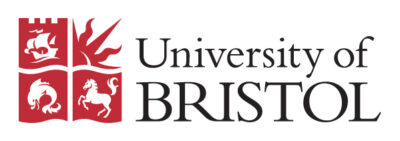 Founded in 1876, the University of Bristol offers a world-class learning environment, with students and staff from more than 150 countries around the world. We are one of the UK’s top 10 universities, a top five UK institution for research and ranked 55th in the world. Bristol is home to cutting-edge research on bilingual learners: recent projects in the School of Education have investigated city-level approaches for supporting new arrivals, the transition at 16 and the ways to improve outcomes in ESOL provision. Our academics regularly contribute to parliamentary calls for evidence and work with partners from across the country, often through our specialist networks such as Migration Mobilities Bristol. The University of Bristol is committed to its work with bilingual and migrant learners. We are a University of Sanctuary and offer a number of Sanctuary Scholarships for refugee learners.
Founded in 1876, the University of Bristol offers a world-class learning environment, with students and staff from more than 150 countries around the world. We are one of the UK’s top 10 universities, a top five UK institution for research and ranked 55th in the world. Bristol is home to cutting-edge research on bilingual learners: recent projects in the School of Education have investigated city-level approaches for supporting new arrivals, the transition at 16 and the ways to improve outcomes in ESOL provision. Our academics regularly contribute to parliamentary calls for evidence and work with partners from across the country, often through our specialist networks such as Migration Mobilities Bristol. The University of Bristol is committed to its work with bilingual and migrant learners. We are a University of Sanctuary and offer a number of Sanctuary Scholarships for refugee learners.
NALDIC 31 Gold Sponsors
Learning Village – Across Cultures

Learning Village is an extensive online and offline interactive vocabulary, language structure and reading programme teaching the components of the English language to EAL, SEND and low-level learners, making the EAL learning journey enjoyable for learners, time-efficient for teachers and ultimately driving effective results.
Using image as the language of instruction, it is designed for learners to succeed regardless of their mother tongue or language background. Set in a huge interactive world, learners sit reading fluency and comprehension exercises whilst making a community of virtual friends. It is based on sound research and EAL practice, providing carefully designed curriculum, induction-to-English, phonics, spelling and reading resources, alongside assessment tools.
The programme comprises the Village (primary), Islands (secondary) and City (parents) and each programme is adapted to the relevant age range and learning needs.
AssessEP – an English proficiency assessment tool is also available. This measures reading, writing, speaking and listening proficiency
Macmillan Education
Education is changing at an ever-increasing pace. Macmillan Education is at the forefront of this change, providing solutions that enhance the teaching and learning experience for everyone, at every stage of education.
As technology opens new doors for teachers and students, we use our expertise to create products that suit different learning styles and design innovative new tools for teachers and students.
We produce high-quality, trusted educational materials and provide support to teachers and students, so they can get the most from what we publish.
Our two divisions, Language Learning and Schools Curriculum, inspire a lifetime of learning.
NALDIC 31 Bronze Sponsor
Twinkl EAL
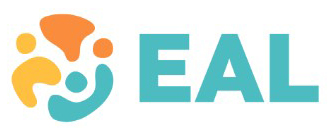 Introducing Twinkl EAL, a leading supporter of multilingual learners and diversity enthusiasts. With an unwavering commitment to empowering educators, Twinkl EAL offers a comprehensive range of downloadable resources, online games, and apps meticulously crafted by seasoned EAL educators. With over 50 years of combined experience in EAL teaching and leadership, our team takes pride in fostering language skills and equalizing learning opportunities globally.
Introducing Twinkl EAL, a leading supporter of multilingual learners and diversity enthusiasts. With an unwavering commitment to empowering educators, Twinkl EAL offers a comprehensive range of downloadable resources, online games, and apps meticulously crafted by seasoned EAL educators. With over 50 years of combined experience in EAL teaching and leadership, our team takes pride in fostering language skills and equalizing learning opportunities globally.
Our versatile content, including dual-language materials and effective scaffolding, aims to create an inclusive and supportive learning environment for learners of all proficiency levels. Spanning 200 countries and regions, including the UK, USA, and Australia, we also provide a wrap-around support community offering training guidance through podcasts, online CPD, and regular networking meetings, featuring contributions from experts and researchers in the wider EAL community, alongside organisations working with international arrivals. Join us in our mission to make learning accessible, affordable, and a catalyst for positive change worldwide.
www.twinkl.co.uk/resources/inclusion-teaching-resources/eal-inclusion-teaching-resources


